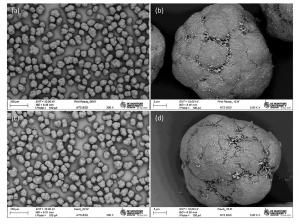Research highlights the feasibility of predicting 3D print quality from powder properties
Transitioning from ‘trial and error’ to a more cost-effective, sustainable approach with the FT4 Powder Rheometer®
TEWKESBURY, GLOUCESTERSHIRE, UNITED KINGDOM, September 15, 2022 /EINPresswire.com/ -- Researchers from De Montfort University (Leicester, UK) have successfully correlated the quality of 3D printed polyamide specimens with powder properties measured with the FT4 Powder Rheometer® from Freeman Technology paving the way to more cost-efficient, sustainable powder feedstock selection. Powders are currently selected for 3D printing via print trials, but these are costly, time-consuming, and wasteful. Key observations from this latest research are that the:• quality of polyamide 3D printed specimens is dependent on the packing efficiency and flowability of the associated powder feedstocks
• packing efficiency and flowability can be reliably differentiated via the measurement of bulk and dynamic powder properties with the FT4 Powder Rheometer
• key mechanical properties of printed specimens such as dimensional accuracy, tensile strength, and surface roughness correlate robustly with polyamide powder properties measurable with the FT4 Powder Rheometer
In the study, two commercial polyamide powders of similar particle size and morphology were used to produce five powder blends for testing. Measurements of dynamic properties – Basic Flowability Energy and Aeration Ratio – clearly differentiated the blends with respect to flowability while Conditioned Bulk Density values provided complementary insight on packing efficiency. Print trials with the powder blends using a commercial Selective Laser Sintering system produced samples that varied considerably with respect to mechanical properties. Observed variability was rationalized with reference to the measured powder properties and correlations were established for key properties.
Improving the efficiency and sustainability of 3D printing are essential to extend commercial application. For powder-based processes a key goal is the ability to characterise new and recycled powders to predict behaviour in the printer, as well as the properties of finished components. This study adds to the growing weight of evidence that suggests the FT4 Powder Rheometer can help to realise this goal, for both polymeric and metal powder feedstocks.
The De Montfort study is described in detail in a whitepaper freely available for download here, or for a deeper dive into powder testing for 3D Printing/Additive Manufacturing try the Freeman Technology ebook.
Jamie Clayton
Freeman Technology Ltd
+44 1684 851551
pr@freemantech.co.uk
Visit us on social media:
Facebook
Twitter
LinkedIn
Other
Legal Disclaimer:
EIN Presswire provides this news content "as is" without warranty of any kind. We do not accept any responsibility or liability for the accuracy, content, images, videos, licenses, completeness, legality, or reliability of the information contained in this article. If you have any complaints or copyright issues related to this article, kindly contact the author above.

